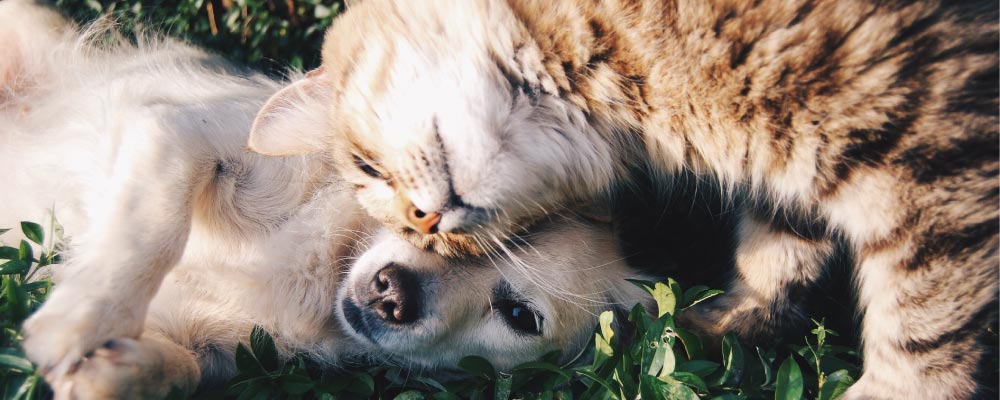
Protecting your family’s dental health means protecting your pet’s teeth, too! Pets are susceptible to cavities, tooth decay, and gum disease just like humans. And just like with humans, bad oral health is dangerous to your pet’s overall health! It can cause heart disease, diabetes, and much more.
Now that you know why it’s important to brush your pet’s teeth, let’s take a closer look at how to brush them. Whether you have a dog or a cat, there are a few good techniques for brushing your pet’s teeth.
How to Brush Your Dog’s Teeth
It’s important to brush your dog’s teeth regularly. You can buy dog-friendly toothpaste (don’t use human toothpaste because it’s toxic to dogs!) as well as a dog-friendly toothbrush or a dog-friendly finger brush depending on what your dog likes best. Start with touching their gums every once in a while to get them used to the idea of having a dental instrument in their mouth. Then, over time, wipe their teeth with wet gauze. Once your dog seems comfortable, introduce the toothbrush with toothpaste and gently brush your dog’s teeth, making sure to go over the hard-to-reach spots. If you can, brush your dog’s teeth once a day or at least every other day to avoid painful and costly dental issues in the future.
When you’re not brushing your dog’s teeth, offer a bone or specially formulated dental treat to chew on. Chewing is a natural way for dogs to get rid of plaque and bacteria off their teeth, so it’s important to give them that option.
How to Brush Your Cat’s Teeth
Brushing your cat’s teeth is much like brushing your dog’s. Buy cat-friendly toothpaste and a cat-friendly toothbrush to use after you’ve gotten your cat comfortable with the idea of having their gums and teeth touched. You’ll want to brush your cat’s teeth once per day, but three times per week is fine as well if your cat does not have any dental issues.
If your pet is resistant to having their teeth brushed, ask your veterinarian about dental cleanings. These can be quite costly, so only resort to professional dental cleanings if you are unable to brush your pet’s teeth yourself. Your veterinarian will be able to determine if your pet would benefit from a professional cleaning as well.
Lastly, be a positive pack leader and set a good example for your pet by scheduling regular cleanings and examinations for yourself. We look forward to seeing you McKinley Crossing Dental. Contact us to schedule an appointment!
